|
by Rana Asfour This weekend Nov 25 & 26, 'Wanna Read?', a novel charitable initiative led by Her Highness Sheikha Shamma bint Sultan bin Khalifa Al Nahyan, will take over the 'World of Reading' event at Marina Mall, Abu Dhabi. There will also be boxes available to donate your old books. So don't forget to bring them along too. BookFabulous will be there making sure it all goes well. So if you have a question about what book to read next just come on over and say hello and you'll soon have a recommendation or two or three... The event is a chance for children and their parents to enjoy a whole host of activities centred around reading. Some very notable children's authors are lined up to appear at the event over the coming two days and there are workshops to be enjoyed for children of all ages. FROM THE IMPRESSIVE LINE UP: Janet Olearski Janet Olearski, the founder and organiser of Abu Dhabi Writers' Workshop will be offering a story workshop on Friday 25 Nov. and a poetry workshop on Saturday 26 Nov. Both workshops will cater for children aged 8-12. Olearski's short fiction has appeared in various publications including Jotters United, Far Off Places, Bare Fiction, and Beautiful Scruffiness and she has authored several children's books, amongst them 'Twins', 'Mr. Football', 'The Sunbird Mystery' and 'Triangle'. For more on Janet, click HERE. Janet will be at the event on Friday 25 Nov. from 10am-11am & Saturday 26 Nov. from 10am-11am Nadia L. Hohn Nadia Hohn is a writer of colourful realism in non-fiction, middle grade, picture book, young adult and book reviews about Carnivals, music, media, diversity and make-believe. Hohn's first two non-fiction books 'Music' and 'Media Studies' were published as part of the Sankofa series by Rubicon Publishing in 2015. The series won the Moonbeam Children's Book Award for Multicultural Non-fiction in 2014. Nadia's first picture book 'Malaika's Costume' was published by Groundwood Books in 2016. Nadia will be appearing at the event on Friday 25 Nov. from 4pm-5pm & Saturday 26 Nov. from 3-4pm Aida Snobar Kassissieh Aida is preparing to launch a YouTube channel entitled 'Tata Aida' for reading children's stories in Arabic and English (2016). She will be reading to children from her new Arabic book 'The People on the Moon Eat Carrots' and she will be conducting a workshop on reading on both days (Nov. 25 & 26). Aida will be appearing at the event on Friday 25 Nov. from 12pm-2pm & Saturday 26 Nov. from 1pm-3pm Dr. Ahmed Al Shoaibi Dr. Al Shoaibi is an engineer and the author of 'The Tales of Hamad', a book series that tells about an Emirati boy on a journey of discovering himself, his heritage, and everything around him. Dr. Al Shoaibi will be appearing at the event on Friday 25 Nov. from 7-8pm Yara Radwan Yara Radwan is a doctor and nutritionist who is very passionate about children's nutrition and health. She is the creator of the digital app 'The Magic Meal' which has been supported by creative lab TwoFour54 and is available on the Apple App Store in both English and Arabic for free. She will be appear at the event on Friday 25 Nov. from 2-4pm & Saturday 26 Nov. from 12pm-1pm
0 Comments
Novelist & Short Story Writer Andrew J. Keir To BookFabulous: 'Aspiring Writers Don't Read Enough'20/11/2016 by Rana Asfour Andrew J. Keir is a name you can be sure will always pop up when writing and books are being discussed in the UAE. The novelist and short story writer who divides his time between Abu Dhabi and Scotland has managed since 2008 to publish two novels - 'Bloody Flies' (2012) and recently 'Mac Ailpin's Treason' - in addition to setting up and teaching a creative writing class popular with Abu Dhabi's aspiring writers. He was the first writer to be shortlisted twice for the Kitab/M Magazine short story prize, the largest prize in the Middle East for short stories in the English language - (The Sirens' Song and Moving Messages). His story Moving Messages was runner up in the 2010 competition. The Abu Dhabi based author holds an MA from Lancaster University's prestigious Creative Writing programme. His second novel, Mac Ailpin's Treason, is out now, and he is working on a picture book for children. His first novel, Bloody Flies, is out in paperback and ebook. BookFabulous: Thank you for agreeing to the interview. Tell us a little about yourself and how you got into writing? Andrew J. Keir: I am the married father of twin boys, who lives for most of the year in Abu Dhabi, and summers in Largs in Scotland. Since I was small I have always wanted to be an author and dabbled with writing. In 2008 I decided I had to do something more serious about this ambition and signed up for an undergraduate level creative writing course with the Open University. I loved it and before the year was out had published my first short story, 'The Sirens’ Song', in The National. After that, I submitted a portfolio of work to Lancaster University and, to my surprise, was accepted on to their MA in Creative Writing. My first novel, 'Bloody Flies' was the result of my time there. Since my graduation from that course, I have divided my time between writing and teaching Creative Writing. My second novel, 'Mac Ailpin’s Treason', came out this year. BF: What is the one thing that not many people know about you? AJK: I was once a stooge in the Ken Dodd laughter show. BF: How would you describe you first book ‘Bloody Flies’? AJK: 'Bloody Flies' is an episodic novel of interconnected short stories that are set in the UAE between 2000 and 2010. Each episode provides a perspective on the derailing expat life of the key protagonist, Leo Hunter, and his family. One of the themes of the book is slavery and this proved to be a bit controversial when it was released. BF: Although a work of fiction, ‘Bloody Flies’ does in fact touch upon many situations that expats in the UAE will identify with –some good, others not so – Did that mirroring of reality cause any difficulty where the editing process was concerned (i.e the decision to include or exclude certain scenes)? AJK: Yes. At times it was difficult to balance a truthful telling of my UAE stories with what might be accepted by others. I think a writer often, but not necessarily always, has a responsibility to self-censor at the editing stages if he/she wants to find an audience. In this case I realised that if I wanted to sell any copies in the UAE I would have to be careful and present certain scenes more delicately than I otherwise might have. In the end, I didn’t cut scenes but I did adjust them. That said, 'Bloody Flies' still caused a degree of consternation amongst certain groups on its release, and I think that was because I didn’t sacrifice the truth at the heart of the novel. 'Tell me Leo, why are you here?' His voice is soft. BF: Your second novel is also based on real events, is it not? AJK: 'Mac Ailpin’s Treason' is a historical adventure that tells the story of Cinaed Mac Ailpin and how he became the first King of Scotland. It is set in the ninth century and deals with Cinaed’s relationships and motivations that spurred him along in his dramatic and sometimes dark and violent life. Readers who enjoy a good story will enjoy the novel just as much as the history buffs out there. BF: As far as historical fiction writing goes, how much artistic license do you think writers should allow themselves and how do you perceive the ethics of writing about historical figures? AJK: I think that writers of historical fiction, especially medieval historical fiction, can never truly know the real historical figures that they write about. I think that this is also true of academic historians. In both cases the actuality of history is too far removed from modern life. However, writers can truly know the historical characters they have created, and if they have completed an appropriate amount of research that does justice to the writer’s subject, then the resultant work will contain inherent truths that make reading it worthwhile. On the beach, men are picking up the last of the Gael bodies and moving them to graves on unused land next to the farmstead. The Viking dead and their weapons still litter the sand. BF: Did publishing your first book change your writing process at all and if so, how did that manifest itself in your approach to your second novel? AJK: I had begun 'Bloody Flies' with a few short story ideas but no real plan and, about half way through, I realised I was getting a bit lost. I stopped what I was doing and drew up a plan to pull all the strings together. Thankfully it worked, but I realised then that I would draw up skeleton plans of future books before I started writing them. This is what I did for 'Mac Ailpin’s Treason'. The plan was not greatly detailed and allowed room for creative development - For example, my original plan outlined twenty-two chapters, but in the end the book was thirty-five chapters long - but was strong enough to keep me on my path. BF: How much research do you go into before writing a book? AJK: It depends on the genre of the novel and what the novel is about. For Bloody Flies I did very little research – just living in the UAE was good enough. Mac Ailpin’s Treason, on the other hand, involved a huge amount of detailed historical and literary research. This detective work was something I enjoyed very much and would like to do more of in future. BF: What do you find is the most difficult part in a creative process? And what have you learnt from overcoming the ones you have experienced while writing? AJK: Getting started every day. I am easily distracted and I find the daily discipline of writing difficult to stick to. The best solution is to draw up a strict weekly writing schedule and stick to it. Graham Greene wrote five hundred words a day and I aspire to that when I am in full flow. BF: How long on average does it take you to write a book? AJK: Between a year and two years. Teaching and child-care slows the process down considerably. BF: From your experience in teaching creative what are common traps that aspiring writers fall into and what advice can you offer from your journey so far? AJK: Most of your friends will say they love your work and won’t criticise you. Don’t believe them. Join a writers' group and you will receive more honest feedback. Criticism is good as it helps you to develop. Know and understand the genre that you are writing in. This will help you when you try to publish after the novel is written. Read more; Many aspiring writers don’t read enough. BF: What is your favourite childhood book? AJK: 'Charlie and the Chocolate Factory' by Roald Dahl – Fantastic escapism that proves the truism that books are always much better than their resultant movies. I still have vivid memories of my dad reading it to me. BF: Which in your opinion do you find to be an under-appreciated novel? AJK: 'Siddartha' by Hermann Hesse – Simple, beautiful and brilliant. BF: What book(s) are you reading at the moment? AJK: 'Shift' by Hugh Howey; This Sci-fi thriller is the second book in the Wool series, clever and entertaining, if a little long-winded. After that, I am looking forward to reading Ian Rankin’s new Inspector Rebus novel, 'Rather the Devil'. John Rebus is my favourite character in fiction. He ages in real time, with each book, and his development is intriguing. by Rana Asfour It is remarkable how one artist has managed to turn a catastrophic act of nature into ‘scenes’ of compelling beauty thereby setting the stage for internal meditation as well as meaningful timely global conversations on climate change. Lars Jan, artistic Director at Early Morning Opera, has been registering the onslaught of floods around the world since Hurricane Katrina hit the Gulf Coast of America in 2005. When - again - floods were to cause severe damages in Pakistan in 2010, Lars decided that he had to act. It was eventually a photo made by the photojournalist Daniel Berehulak that finally focused his attention on an installation that would relate the evolving story of water in the 21st century. And so, four years on, Holoscenes was born; ‘a piece with no words’ as Lars described it last night to an audience of volunteer docents at Abu Dhabi’s New York University where the installation is scheduled to go live for its UAE premier this afternoon. Holoscenes is essentially a large human-size aquarium that floods, drains and floods again inhabited by a rotating cast of eight performers conducting everyday behaviors. The exhibited behaviors reflect or even mirror human everyday behavior – from making the bed to cleaning the house. Scientists argue that these mirco-cycles that constitute the predominant patterns of our life indicate that cognitive and behavioral science is also about CO2 and melting glaciers. In layman’s terms: the decisions we make and the way we live our life through small daily patterns that interconnect with the patterns of others leaves no doubt that ‘we are collectively responsible for climate change’. ‘As a species we have shown a great capacity to respond and adapt to crisis and I have made sure that this comes across in the installation; you’ll notice that none of the performers are struggling with the fact they are being submerged under gallons of water, in fact they seem to be relaxed and making the best of their environment,’ explains Jan, ‘We need to take action and be innovative to make real change. So, even green solutions are not enough if we do not take ownership for our industries and activity and demand that others do the same. Climate change is fast, long-term, complex, and therefore requires immediate long-term solutions’. ‘What offers hope is that we are an empathetic species and we must harness that fact and appeal to each other’s emotions in a positive way to harness the needed change. I understand that people change slowly but what we must all understand as well is that the world is changing at a very fast rate’. Lars Jan hopes that his installation will inspire a conversation, a story even, on a topic very close to his heart. This has already happened. One of the scenes depicts a woman with bucket and sponge at hand, busy at work cleaning the inside windows of the aquarium as the water in the tank slowly rises until she is eventually submerged and she and her tools, hang as if suspended in water. And yet, completely unfazed by what is happening around her, the woman continues to hold her sponge and wipe away at the windows as if nothing is happening. A female spectator standing by the side of the aquarium when it was on exhibit in the US, turned to Lars and commented that to her it felt that the woman was possibly ‘drowning in her own tears’, while a much younger spectator commented that the woman in the tank was most assuredly ‘a mermaid’. ‘It is stories like these that I want the installation to draw out of people. I want everyone to see their own story and to share their thoughts and ideas with others. I am not here to tell people what to think or what this is about. I want them to feel and think on their own, and to strike up a conversation with each other on how they feel their actions affect climate change and how they can be part of the solution too. You never know how a conversation can change your life’. The installation runs from Today until Saturday November 19 from 4pm-9pm, Central Plaze Campus. I will be a volunteer docent so stop by to say hi! Admission in free. For more information, click HERE Make the most out of your visit:
Begin your day with a visit to the Invisible Threads exhibit at The Art Gallery before heading over to watch the performers take to the Holoscenes aquarium. From there visit Above Below and Below Below an exhibit by John Torreano, NYU Professor of Art. Top it off with Rooftop Rhythms poetry open mic night (Friday, Nov 18 @ 8pm). by Rana Asfour When Rob Sinclair offered me a pre-release copy of his new book 'Dark Fragments’, I was over the moon. I’d read his ‘Enemy’ series, three espionage thrillers featuring Carl Logan and I had loved every single one of them. I couldn’t wait to start on this one too. Released yesterday (November 7) by Bloodhound Books on all reading platforms, ‘Dark Fragments’ is Rob Sinclair’s first stand-alone novel. It is a psychological thriller that involves murder, family secrets, betrayal, money, revenge and a whole lot of scratching below the surface. It is a novel that keeps a reader on their toes and with its short concise chapters, readers will be able to get through it in one sitting. In fact, once you pick it up and tuck in, you’ll not want to put it back down. In ‘Dark Fragments’ Sinclair has taken a big risk – and come up trumps - relaying the novel in the first person, which provides the reader with only Ben’s point of view the entire time. However, the chapters in which Ben talks to an unnamed character in one instance commenting on key events in his life and in another setting up the reader for what is yet to come, are ingenuous and save the book from falling into the stagnation of a monotonous unreliable diary of one man’s life. Instead these chapters transpire to be key stations whereby the reader gets to delve into Ben’s real psyche in order to keep up with his reasoning. ‘Dark Fragments’ is Rob Sinclair’s fourth book and by all accounts his best and strongest yet. On par with ‘Gone Girl’ and ‘The Girl on the Train’ – albeit a male equivalent - this will strike a note with readers who enjoyed both books. Although it is a much darker, more fast-paced read than either of the mentioned books, ‘Dark Fragments’ is a psychological thriller with twists and turns that will have you reeling from one page to the next on a roller coaster ride that does not disappoint. Another resounding success for this brilliant writer! The way we bottle up emotions in this day and age, the way we shy away from conflict, it makes things worse, because the end result is so much more extreme - Ben in 'Dark Fragments' ABOUT THE NOVEL: If I have three pounds and an ice-cream costs one pound, how many ice-creams will each of us have? At first glance it seems that Ben Stephens is a lucky man: he is husband to a beautiful woman, father to two adorable young children, owner of a luxurious home (with perks) and a lucrative consultant lauded as ‘the future of the team’ at a prestigious firm. However, it doesn’t take long into the book to figure that Ben Stephens may in fact be the unluckiest man on the planet. Early on in the novel, it transpires that Ben’s first wife - love of his life Alice - mother of his older child Harry was murdered in their home seven years prior. Police believed it to be the work of a serial killer due to the positioning of the body and the single white feather the killer had left behind. No one had been convicted, arrested or charged in connection with Alice’s murder and Ben had been left to pick up the shards of his shattered life and try to move on for the sake of his son. Seven years on and Ben is remarried and has a three-year-old daughter, Chloe, from his second wife, Gemma - a great mother to both children. However the cracks in Ben's life are starting to show on the surface of his idyllic life. Not only has he been unable to get over Alice’s death – he still sees her in his recurring nightmares - but he has also managed to stumble into a business partnership with well-known criminal Callum O’Brady, sinking himself into thousands of pounds of debt which the dangerous, violent and vindictive Irish brute is demanding that Ben repay- and soon. Desperate, Callum comes clean about his situation to wife Gemma begging her for her help. She is after all the daughter of his boss, managing partner James Whitely. After eventually agreeing to help him out, Ben secures the money. However, another series of unfortunate events – which by now Ben and the reader know is inevitable, culminate with a severe beating for Ben at the hands of O’Brady’s bodyguards and the doubling of the debt. To add to Ben's woes, he returns home to find that Gemma, fed up with his lies and incessant problems, has packed his bags and kicked him out of the house. Amidst all this turmoil his twin sister, detective inspector Danielle (Dani), with whom he has never had a ‘straightforward relationship’ shows up at his door after a four-year absence. She arrives with new information regarding Alice’s murder and the suspected identity of the killer who has struck again; a guy by the name of Mickey Egan, another of Callum O’Brady’s henchmen and ‘a truly repulsive excuse for a human being’. Dani enlists the help of her brother to bring O’Brady to justice in exchange for protection not only from the thug and his goons but also from prosecution regarding a recent physical assault that Ben, heavily drunk and unprovoked, had launched on a childhood nemesis. Trapped into a corner, and quickly running out of options Ben agrees to help the police. Predictably, things don’t turn out as planned and more blood and broken bones ensue. And to make matters worse, by this point not only is Ben’s life in danger but also the lives of everyone else connected to him. By this point, Ben is angry: at Gemma, at Alice’s killer, at O’Brady, at his sister and the police and Cara - a woman he is sleeping with and who he describes as the biggest mistake of his life. Ben decides it’s about time to finally take matters into his own hands to see himself out of his predicament. And that’s when it all goes berserk and the novel picks up and accelerates all the way to the end. ‘So when did you become aware of this all-consuming anger? There must be a point you can take yourself back to and say “that was the moment when things really changed for me.”’ 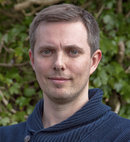 ABOUT THE AUTHOR: Rob Sinclair began writing in 2009 following a promise to his wife, an avid reader, that he could pen a ‘can’t put down’ thriller. He worked for nearly 13 years for a global accounting firm after graduating from The University of Nottingham in 2002, specialising in forensic fraud investigations at both national and international levels. Rob now writes full time. Originally from the North East of England, Rob has lived and worked in a number of fast paced cities, including New York, and is now settled in the West Midlands with his wife and young sons. Visit his website HERE. by Rana Asfour Listen! Have you heard it yet? It's the sound of millions of fingers tapping away at computers in rhyme, rhythm and prose in what can only be labelled as November's writing extravaganza. All around the world, writers are gearing up for the third day of National Novel Writing Month (NaNoWriMo), a 'fun, seat-of-your-pants approach to creative writing' open to anyone, anywhere in the world. And it's completely free. Find out how it works HERE. On November 1, participants began working towards the goal of writing a 50,000-word novel by 11:59 PM on November 30. So, if you've already started on your novel or have just been inspired to, then here's a little help for all of you brought to you by the fantastic tireless people at Signature, a Penguin Random House site that helps readers make well-read sense of the world by contextualising news and culture with book recommendations from all publishers. Just in time for National Novel Writing Month (NaNoWriMo), Signature has teamed up with Evernote to create 'The Ultimate Guide to Writing Advice', a free downloadable e-book that feature writers like David Levithan, Andy Weir, and Elizabeth Berg sharing their hard-won insights into the craft and challenges of writing. The guide includes essays from 12 acclaimed authors and a copyeditor who explore every phase of the writing process. You’ll find tips, advice, and musings on getting started, overcoming writer’s block, developing effective writing habits, and much more. All you have to do is go to the website, sign in with your email and the guide is free to download. Easy! One part writing boot camp, one part rollicking party, National Novel Writing Month (NaNoWriMo) celebrates its 18th year of encouraging creativity, education, and the power of the imagination through the largest writing event in the world.
“Too many people think they’re not a ‘creative type,’ but to be human is to be a ‘creative type’. NaNoWriMo teaches you to believe that your story matters, to trust the gambols of your imagination, and to make the blank page a launching pad to explore new universes. That’s important because when we create, we cultivate meaning. Our stories remind us that we’re alive, and what being alive means,” says Grant Faulkner, Executive Director of NaNoWriMo in a press release. Last year, NaNoWriMo welcomed 431,626 participants in 633 different regions on six continents. Of these, more than 40,000 met the goal of writing 50,000 words in a month. This year, participants will be inspired by weekly “pep talks”, penned by published authors, including Jenny Han, Alexander Chee, and Maggie Steifvater. NaNoWriMo has also partnered with 'We Need Diverse Books' to provide participants access to mentorship from authors including Heidi Heilig and Nita Tyndall. According to thenational.ae employees will be given time off work to read under a law that was passed on Monday, which also exempts reading material from taxes and fees.
The President, Sheikh Khalifa, announced the law, which is aimed at achieving the country’s vision of a knowledge-based economy. "Our goal is to prepare generations that work towards excelling and achieving the vision of the UAE, which since its inception has recognised the importance of knowledge, science and culture, and harnessed them in the best interests of the homeland and Emiratis," Sheikh Khalifa said. Sheikh Mohammed bin Rashid, Vice President and Ruler of Dubai, hailed the law on Twitter as "an unprecedented cultural and legislative initiative". Fees and taxes for distributing, publishing and printing reading material will be scrapped, and facilities for authors, editors and publishing houses will be provided. Sheikh Mohammed said the law would consolidate “the cultural image of books in our society, and oblige coffee shops in shopping malls to offer reading material for customers”. He added that “the law will encourage the private sector to invest in the establishment of libraries and cultural centres. This will be done by providing the private sector with facilities, incentives and discounts'. He also added that the goal is for 2016 to be 'the start of a sustainable cultural change among generations – a change that consolidates the importance of reading, celebrates knowledge and boosts the status of reading.” A national fund will be set up to support reading initiatives and assist media organisations to advertise the importance of books. The fund will also be used to organise a month dedicated each year to promoting literature. |
Archives
March 2021
|


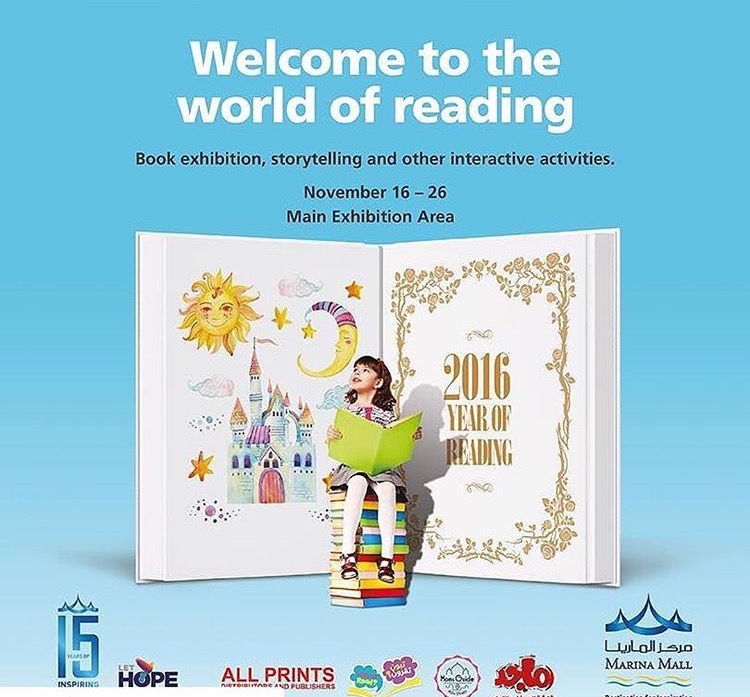
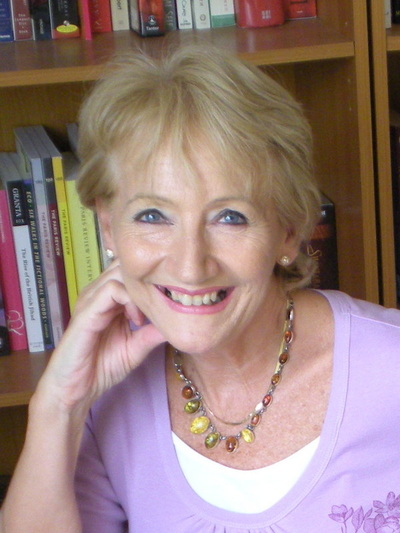
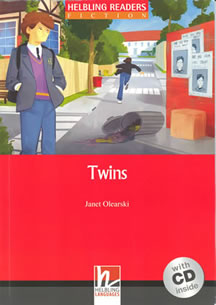
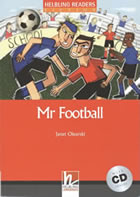
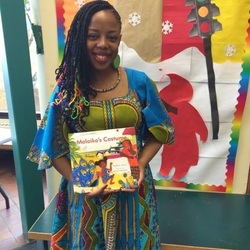
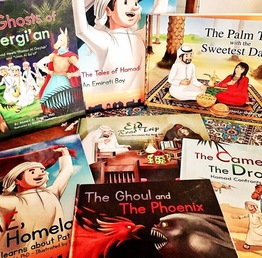

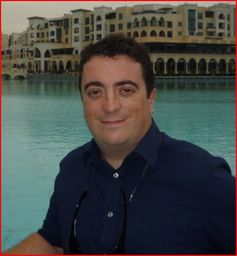
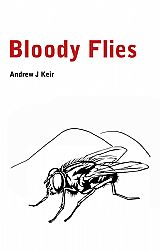
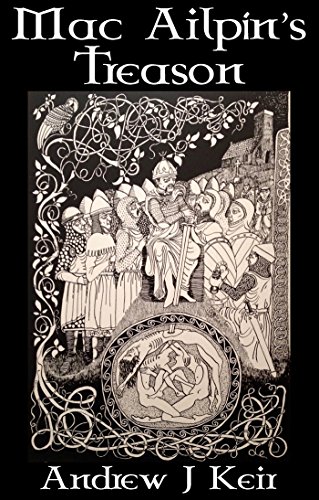
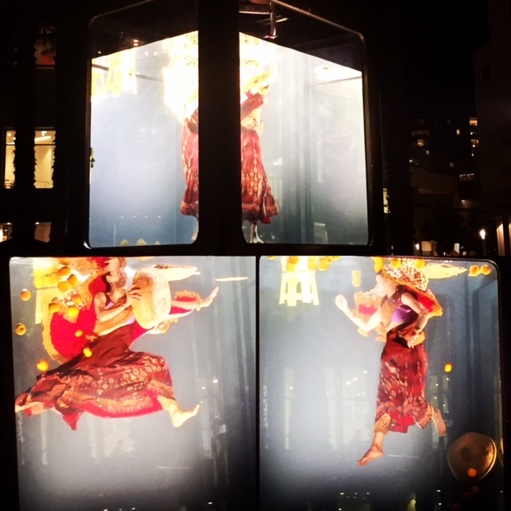
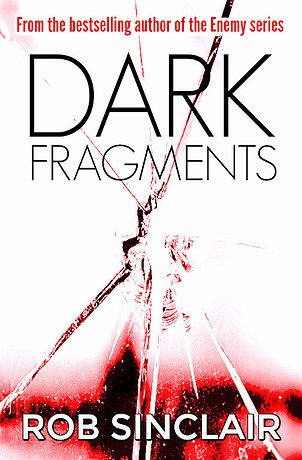


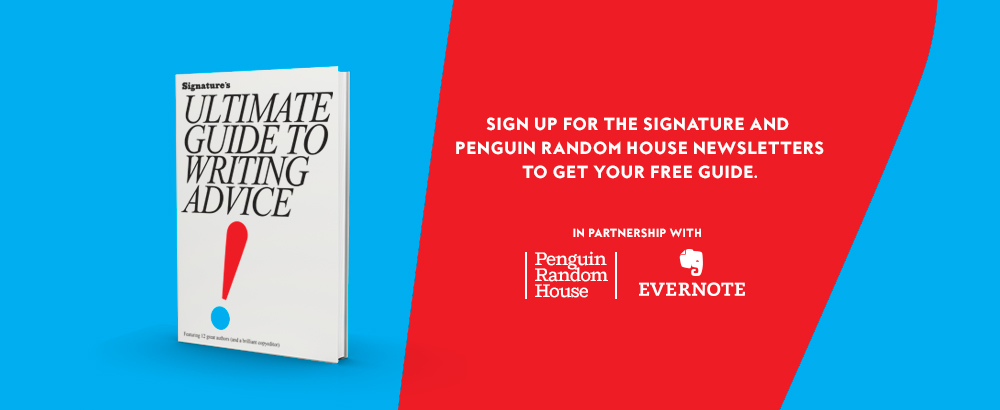
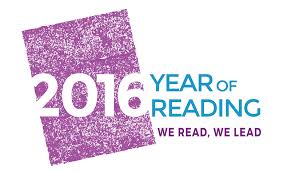


 RSS Feed
RSS Feed
